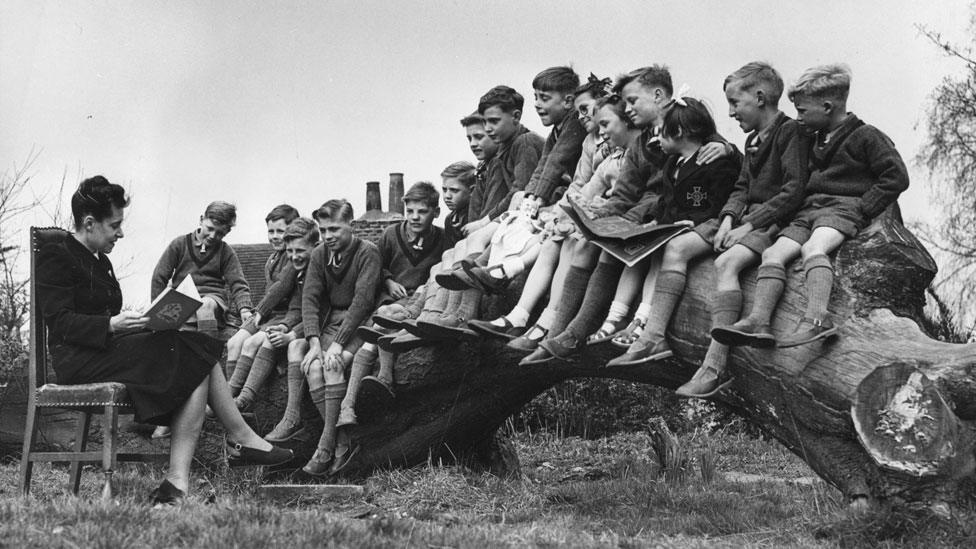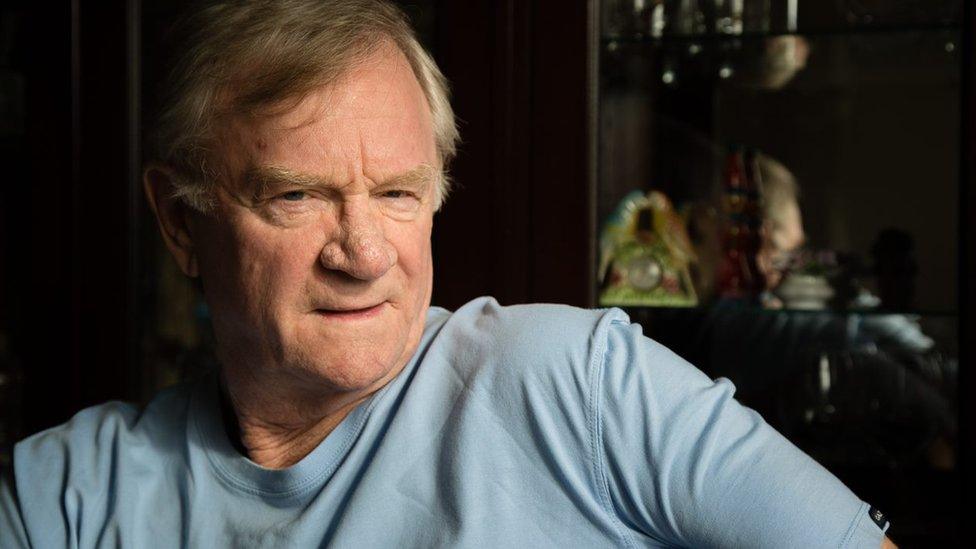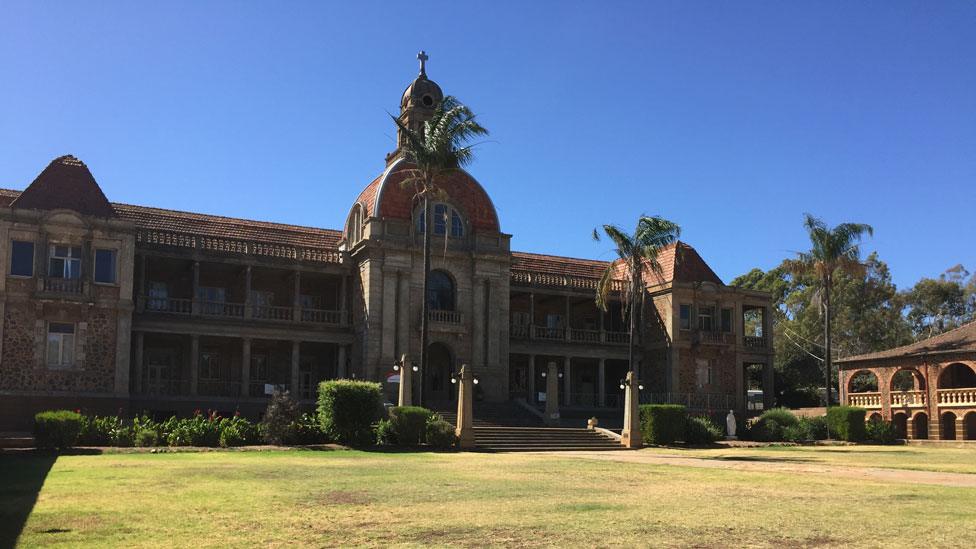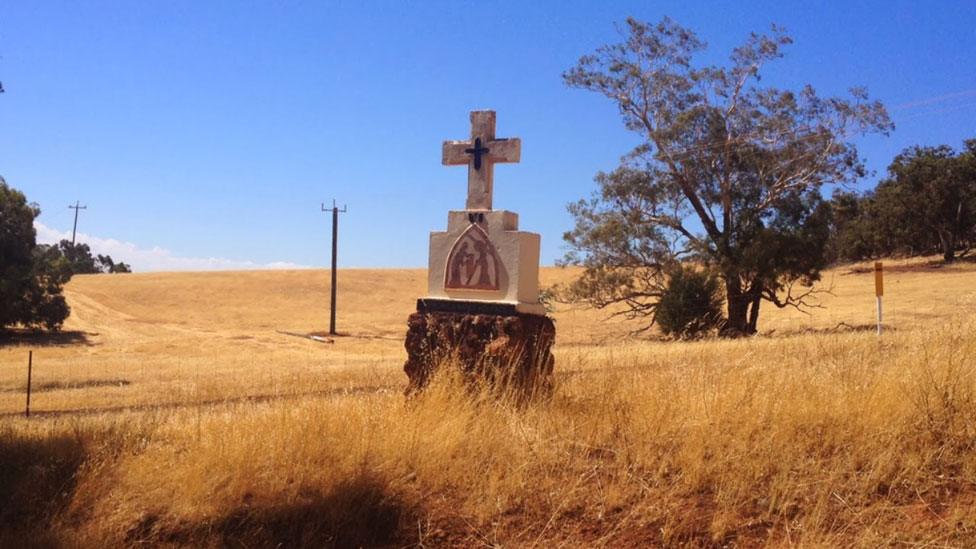UK child migrants sent to Australia sue government over abuse
- Published
"I lost everything I ever had" - Rex Wade was one of the last children to be sent away
More than 100 Britons who were sent abroad as children under a resettlement scheme are to sue the UK government over the abuse they suffered.
In March, an inquiry said 2,000 survivors should receive financial compensation within 12 months.
The victims' lawyer said the government "has a legal responsibility for the harm suffered by those children".
Between 1945-70, some 4,000 children were separated from their families and sent to Australia and Zimbabwe.
The Independent Inquiry Into Child Sex Abuse (IICSA) considered the children who were forcibly relocated in the post-war period.
A scheme saw children from deprived backgrounds who were often already in social care - some as young as three years old - sent away with the promise of a better life.
Overseen by government, and managed by charities and the church, it was part of a longstanding policy aimed at easing the strain on UK orphanages and strengthening the British population abroad.
Victims say they went on to be sexually, emotionally and physically abused.

A group of children from a school in Stevenage were among those to be sent to the Fairbridge school in Molong, Australia
Rex Wade was one of the last children to be sent to Australia as part of the programme in 1970.
At the age of 10, he was shipped from Cornwall with his brother to Tasmania.
He says he was subjected to a punitive regime and was treated "cruelly for any misdemeanour", and that his tormentors would set a dog on him and other children if they misbehaved.
"It was physical, verbal and mental abuse," he says.
"I lost everything I ever had; the relationships I had with my family. It's a lot to deal with and you just don't get over it."
'They took my childhood'
John Glynn, who was sent to a Christian Brothers institution in Western Australia when he was eight years old, is one of the 100 former migrants to bring the case forward.

John Glynn does not believe the British government has done enough to get financial compensation to ageing victims of the UK's child migrant policy
At the institution in Clontarf, he was told he was not loved by his family in Britain. Through his seven years with the Christian Brothers he was beaten brutally with a cane, and also sexually abused.
"As I get older it gets worse," the 74-year-old says.
"I think about that a lot now. They took my childhood from me. They took my country from me, my heritage."

The abuse scandal of the British children sent abroad
By Tom Symonds

Buildings at Bindoon were constructed by migrant children
For several decades, the UK sent children across the world to new lives in institutions where many were abused and used as forced labour. It's a scandal that is still having repercussions now.
Imagine the 1950s, in the years before air travel became commonplace or the internet dominated our lives. Imagine being a child of those times, barely aware of life even in the next town. An orphan perhaps, living in a British children's home.
Now imagine being told that shortly you would board a ship for somewhere called Australia, to begin a new life in a sunlit wonderland. For good. No choice.

More than 130,000 children were shipped to Commonwealth countries from 1618 until 1970, to countries including Canada, New Zealand, Zimbabwe and Australia.
The IICSA investigated the final 4,000 children sent to Australia and Zimbabwe.
It found children suffered sexual and emotional abuse, as well as forced labour. Some were also wrongly told they were orphans, depriving them of the opportunity of meeting their birth parents.
'Actions, not words'
A Department of Health and Social Care spokesperson said: "We want to reassure those affected we are committed to providing a timely response to the Inquiry's recommendations."
But despite the recommendation in March, the government is yet to set up a compensation scheme for the surviving child migrants.
BBC correspondent Sanchia Berg said many "of the migrants feel time is running out" as most are elderly, and some are frail.
Since March, 14 of the survivors have died.
Lawyer Alan Collins, who is representing the victims, said: "The government needs to step up to the plate and bring into force its redress scheme.
"Compensation can never put matters right - that's impossible and it would be insulting to suggest otherwise.
"But it is action, it is a recognition that meets the words that have been spoken by the politicians."
In 2010, then-Prime Minister Gordon Brown apologised on behalf of the British government for sending British children abroad.
Labour MP Lisa Nandy has criticised the government's lack of speed in setting up a service to offer financial compensation for victims.
She said: "Over the last six months we've had absolutely nothing - it took us even six weeks to find out which department was responsible [for financial compensation]."
She added the Australian government had successfully put together a commission for compensation a lot sooner, and "enough is enough".
- Published1 March 2018

- Published26 February 2017
